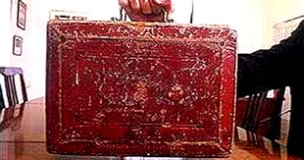Learning how to manage your money with a budget is an essential life skill, and also very important for running a business or even being in government. Keeping track of the money you’ve got coming in compared to what’s going out means you won’t find yourself unable to pay for the things you need, and leaves you money to buy the things you want.
Personal finance
Your financial situation while you’re still at school won’t be as complicated as an adult’s, but it’s still worth having a budget to keep your spending in check. Begin by writing down all your sources of income – this could be earnings from a part-time job, pocket money, or cash you get for your birthday and other events. Add up all the money you receive over the course of a year, and divide by 52 to find your weekly income. If you don’t have an exact figure, an estimate will do.
Next, think about your expenditure – everything that you spend money on. This might include food bought at lunchtime and after school, topping up your mobile phone, or going out with your friends. Work out what you spend on a weekly basis, and add up the total.
Finally, subtract your weekly expenditure from your weekly income to find out how much money you have left over. If you get a positive number then you’re doing pretty well – by spending less than you earn each week, you can put aside some money to save for the future. If you get a negative number, then things aren’t so good – you’re spending money faster than you earn it! You might want to think about reducing your expenditure by cutting back on things you don’t need, or you could try increasing your income by getting a part-time job if you don’t already have one.
 Analysing your finances with a budget is a great way of making sure you’re not frittering money away. For example, buying £10 of credit for your mobile each week may not sound like much, but over the course of a year it works out as a whopping £520! Topping up just £5 instead would save you £260 that you could put towards a larger purchase.
Analysing your finances with a budget is a great way of making sure you’re not frittering money away. For example, buying £10 of credit for your mobile each week may not sound like much, but over the course of a year it works out as a whopping £520! Topping up just £5 instead would save you £260 that you could put towards a larger purchase.
Business expense
Budgeting isn’t just for tracking your own cash though – businesses and governments need budgets to plan for the future and keep things running smoothly. Business owners and politicians create their budgets in the same way as personal budgets, by predicting, tracking, and comparing income and expenditure. The only difference is the numbers are usually much larger!
A business makes money from the products and services it sells, and spends money on things like staff wages, raw materials, and rent. These forms of income and expenditure will vary depending on the exact nature of the business, but all businesses have to balance their budgets to survive. If you’d one day like to start your own business you need to be sure of getting enough sales to at least cover your costs, otherwise you’ll never make a profit! A well-planned budget will help keep you in the black.
Governments aren’t motivated by profit, but they still need a budget. Instead of getting income through sales, a government collects taxes from its citizens, then spends the money on public services like health, education, and defence. The government budget in the UK is controlled by the Chancellor and HM Treasury, which employs a large number of mathematically skilled people to calculate and predict the flow of public money. Changes in the budget can mean some people have to pay more tax than others, or some services get cut back, so it’s very important to get it right.
Cheerful, not cheap
Whether it covers an entire country, or just your weekly pocket money, creating a budget helps plan for a secure financial future. Budgeting doesn’t mean counting every penny or reducing your spending to nothing; instead it’s about being sensible with your cash and making the most of what you’ve got.






